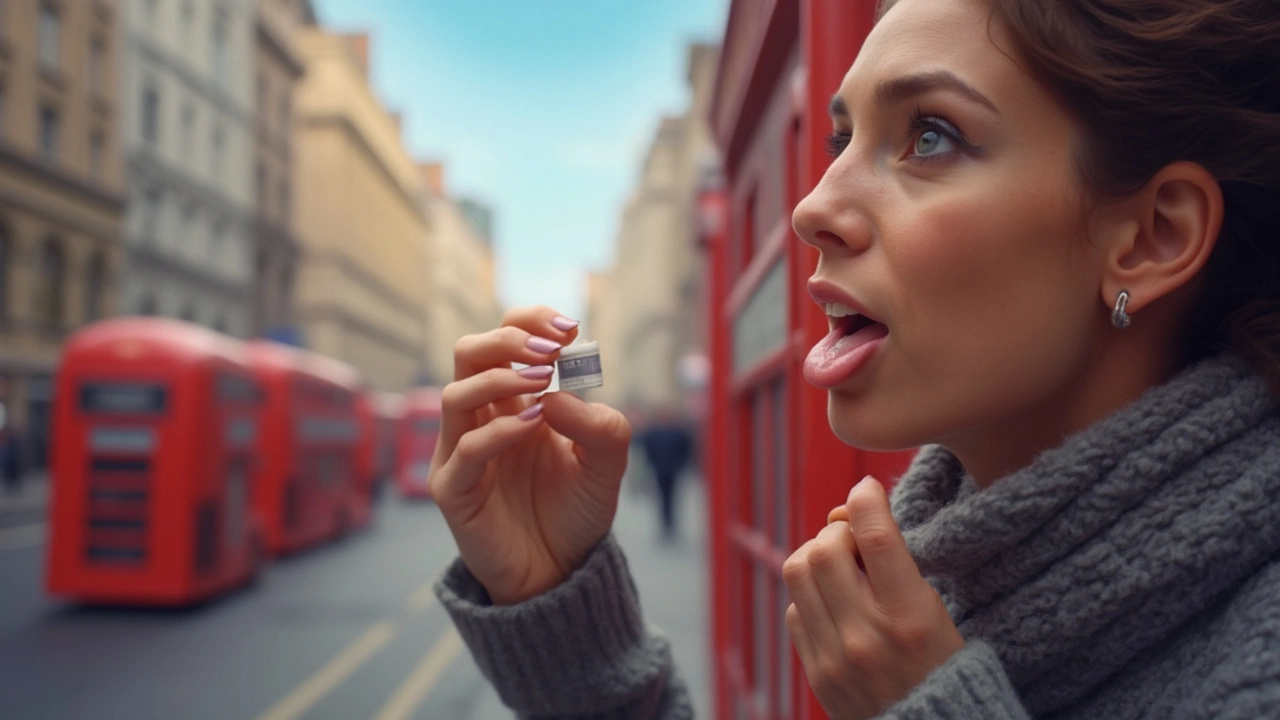Nitroglycerin: what it is and why it matters
A single nitroglycerin tablet or spray can stop angina in minutes — but use it wrong and you could get dangerously dizzy. Nitroglycerin relaxes blood vessels, easing the heart’s workload and restoring blood flow. People mostly use it for chest pain from angina and sometimes in hospitals for severe heart conditions.
Knowing the different forms helps you use it right. Sublingual tablets and sprays act fast for sudden chest pain. Patches and ointment give steady relief over hours. In hospitals, intravenous nitroglycerin is used under close monitoring. Each form has its own rules for timing, placement, and safety.
How to use sublingual tablets and sprays
If chest pain starts, sit down. Place one sublingual tablet under your tongue or spray once under the tongue. Wait five minutes. If pain continues, repeat once every five minutes up to a total of three doses. If chest pain isn’t better after three doses, call emergency services — this could be a heart attack.
Keep spray canisters capped and tablets in their original dark glass bottle. Check expiry dates — nitroglycerin loses strength if exposed to air, light, or heat. Test sprays occasionally (per manufacturer instructions) to make sure they work.
Patches, ointment, and continuous use tips
Patches provide slow-release nitroglycerin. Apply to clean, dry skin and rotate sites. Many doctors recommend removing patches at night or using a drug-free period (often 10–14 hours) to avoid tolerance — when the drug becomes less effective. Ointment is measured with a dose paper and usually covered with plastic wrap; follow dosing exactly to avoid too-low or too-high effects.
Common side effects are headache, flushing, and lightheadedness from low blood pressure. Stand up slowly to reduce fainting risk. If you feel very weak, faint, or develop severe dizziness, sit or lie down and call for help.
Never take nitroglycerin with PDE5 inhibitors like sildenafil (Viagra), tadalafil (Cialis), or drugs like riociguat. Combining them can cause a dangerous drop in blood pressure. Avoid heavy alcohol while using nitrates for the same reason.
Tell your doctor about blood pressure meds, other heart drugs, and any recent prescriptions. Older adults and people who are dehydrated or on diuretics need careful monitoring because nitroglycerin can drop blood pressure suddenly.
Pregnancy or breastfeeding? Use nitroglycerin only if your provider says it’s necessary — the benefits and risks must be weighed. Don’t change doses on your own.
Simple storage habits improve safety: keep tablets in original dark bottles, store sprays capped away from heat, and discard expired stocks. If you’re unsure how to take your prescription, call your pharmacist — they can show you the spray technique or explain patch timing.
If you have chest pain, act fast: take nitroglycerin as directed, monitor symptoms, and call emergency services if pain doesn’t improve after three doses. Ask your doctor about interactions, tolerance strategies, and whether a home blood pressure monitor could help you stay safe while using nitroglycerin.
Nitroglycerin Sublingual Tablets: Your Go-To for Saving Lives in Heart Emergencies
When chest pain strikes, nitroglycerin sublingual tablets can be a quick lifesaver. These tiny tablets work by dissolving under the tongue, quickly opening up your blood vessels to improve blood flow. It's important to know how to use them properly, as they act fast to relieve angina and can prevent a heart attack. With the right know-how, these tablets are a crucial tool in managing heart conditions, offering peace of mind and control over unexpected symptoms. Dive into the workings, benefits, and vital tips on handling these tablets safely.






